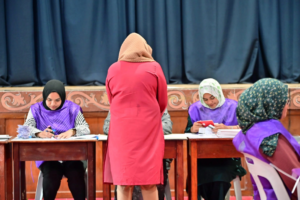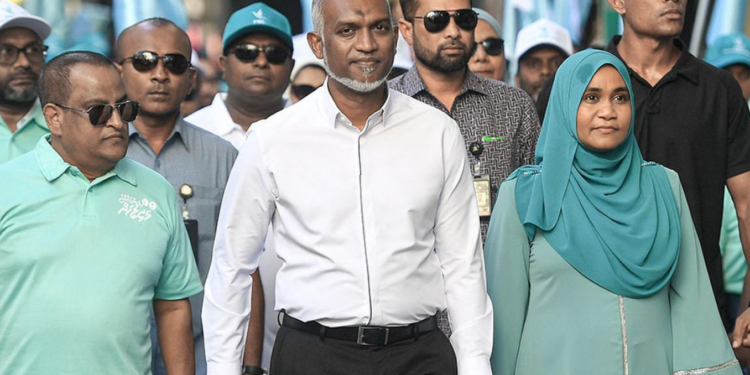Maldives Election: President Muizzu’s Pro-China Stance Fuels India-China Rivalry
The parliamentary elections held in the Maldives on Sunday have drawn significant attention, particularly due to their implications for President Mohamed Muizzu. The outcome of these elections holds considerable weight for not only the domestic political landscape but also for the broader geopolitical dynamics, particularly in the context of the competing interests of regional powers such as India and China.
India and China have been closely monitoring Muizzu’s policies, recognizing the strategic importance of the Maldives in the Indian Ocean region. Both countries have been vying for influence in the archipelago nation, viewing it as a crucial foothold in their respective geopolitical strategies.
The election of Muizzu as president last year heightened the rivalry between India and China, primarily due to his pro-China stance and his actions, including the decision to remove Indian troops stationed on one of the Maldivian islets. These developments have underscored the geopolitical significance of the Maldives and the contest for influence between India and China in the region.
Muizzu’s Uphill Battle for Majority, Increased Candidates and Voter Turnout
Given the complexities of the political landscape in the Maldives, securing a majority in Parliament will pose a formidable challenge for Muizzu. Internal rifts among his allies and the entry of additional parties into the electoral fray have further compounded the challenges he faces in consolidating political support and advancing his policy agenda. Thus, the outcome of the parliamentary elections holds the potential to shape not only the domestic governance dynamics but also the broader geopolitical balance of power in the Indian Ocean region.

A total of 368 candidates from six political parties and independent groups are vying for 93 parliamentary seats in the upcoming election. This represents an increase of six seats compared to the previous Parliament, a modification made to accommodate population growth.
Approximately 284,000 individuals were eligible to cast their votes in the parliamentary elections, with tentative results anticipated to be announced late on Sunday. During his presidential campaign, Muizzu adopted the theme “India out,” alleging that his predecessor had compromised national sovereignty by allowing India to exert excessive influence.
Previously, at least 75 Indian military personnel were stationed in the Maldives, primarily engaged in operating two aircraft donated by India and aiding in maritime rescue operations. Muizzu has initiated measures to transition these responsibilities to civilian authorities.
Tourism Boycott, Shift in Indian Tourist Numbers, and Muizzu’s China Visit
Tensions escalated further when Indian social media activists initiated a boycott of Maldives tourism in response to derogatory remarks made by three Maldivian deputy ministers about Indian Prime Minister Narendra Modi. These remarks were prompted by Modi’s proposal to promote tourism in Lakshadweep, India’s own chain of islands similar to the Maldives.

According to recent statistics from the Maldives government, the number of Indian tourists has declined, resulting in India dropping from its position as the primary source of foreign visitors to sixth place. Earlier this year, Muizzu embarked on a visit to China, where he engaged in negotiations aimed at boosting the number of tourists from China and increasing inbound flights to the Maldives.
In 2013, the Maldives formally joined China’s ambitious “Belt and Road” initiative, which seeks to develop infrastructure such as ports and highways to facilitate trade and enhance China’s influence across Asia, Africa, and Europe.










